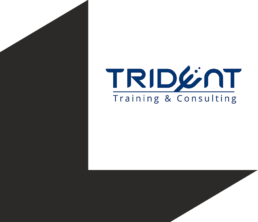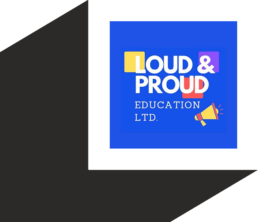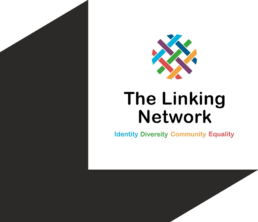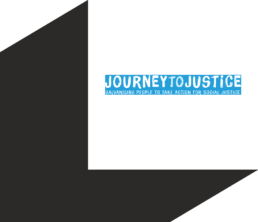Our DEI Event Organisation
Our DEI Event Organisation
Our DEI Event Organisation
We believe that annual conferences and INSET days in a school or across a group of schools are a great way to align the vision, mission and values of a DEI strategy to create collective agency.
Hannah was an event organiser before becoming a teacher and she has also spent years working in hospitality. These skills came in handy when she ran multiple Teaching School Alliances, curated programmes for the DfE funded Diversity and Equality Grants and organised the annual conferences for the schools and MATs that she worked in.
Big or small, Diverse Educators can help you organise your INSET days and annual conferences for your organisation.
We have experience organising and hosting large scale face-to-face and virtual events including a MAT conference for 3,500 at the Excel Centre and a virtual conference for 900 on Teams.
We can help you source brilliant speakers to ensure that you have a diverse line up and support you in ensuring that your event is as accessible and as inclusive as it can be.
Get in touch if you are looking for support in organising and curating your next event.
Our DEI Critical Friendship
Our DEI Critical Friendship
Our DEI Critical Friendship
We believe that sometimes it is not a coach that you need, but a mentor or a critical friend.
We position ourselves as critical friends, with our clients, when invited to do so as this relationship needs to be contracted so that it is safe and supportive.
Last year, on a 1:1 basis we supported CEOs, Headteachers and Senior Leaders who were responsible for shaping the DEI strategy in their contexts. Each individual wanted a safe space to explore what was happening for them, their teams and their schools to mull over policies, practices and processes to ensure that they were fit for purpose and serving their community.
We also worked with teams such as governing bodies, Senior Leadership Teams and newly formed DEI working parties in schools or across MATs who wanted some accountability on their DEI action plans.
Get in touch if you are looking for a critical friend to bring you constructive challenge.
Our DEI Consultancy
Our DEI Consultancy
Our DEI Consultancy
We believe that a DEI consultant can help you to conduct an assessment of your entire organisation, lay out a diversity strategic plan, guide your change management strategy, and also mould the communication of your new plan.
DEI consultancy helps organisations implement a diverse, all-inclusive workforce for increased employee engagement and growth.
- Shaping your DEI strategic plan
- Quality assuring your existing systems
- Identifying quick solutions
- Facilitating of working groups and networks
- Facilitating of stakeholder feedback
- Supporting and training for your DEI lead
- Training and coaching for protected groups to support representation at leadership level
Get in touch if you are looking for a consultant to support you on your DEI journey.
Our DEIB Coaching
Our DEIB Coaching
Our DEIB Coaching
We believe in the power of coaching to empower individuals and teams on their leadership journeys.
Our #DiverseEd trainers and facilitators bring a wealth of leadership experience and coaching expertise to our offer.
Complementing the DEI training sessions and programmes that we design and deliver, we can offer wraparound 1:1 and group coaching for different stakeholder groups to support them in leading the DEI strategy.
Last year we worked with a number of organisations to coach the existing or aspiring DEI leader, to coach a group of curriculum leaders, to coach the headteachers and system leaders across a MAT.
Coaching creates a safe space for people to unpack what is going on for themselves and others, to process what they are thinking and feeling, and to deepen reflective practice.
Meet our coaches who have recorded a welcome message for our coaching video gallery.
Find out about the experience and qualifications of our coaches.
Download our coaching directory flyer.
Get in touch if you are looking for a coach for yourself or for one of your team.
Submit your Expression of Interest in training to coach with our partners
Our Coaching Events
Our Podcasts
Our Podcasts
Our Podcasts
- Our vision: Everyone is celebrated in every classroom in every school.
- Our mission: A collaborative community that celebrates the successes and amplifies the stories of diverse people.
- Our values: Promoting Acceptance. Increasing Visibility. Encouraging Celebration. Creating Belonging. Enabling Learning.
Our #DiverseEd Podcast
In each episode, our co-hosts interview a contributor from a chapter of Diverse Educators: A Manifesto.
NASBTT: Diversity in ITTE Podcast
Diversity, Equity and Inclusion Podcast Series with hosts, Hannah Wilson and James Coleman. Series one is based around grass roots organisations and series two is based around the protected characteristics.
Trident Training & Consultancy

Trident Training & Consulting
Trident Training & Consulting is an organisation that works on issues of sexual misconduct, diversity & inclusion, and restorative justice. Based in the USA and acting globally, Trident is headed by Andrew (he/him), who loves sharing his experiences with others and helping teams and individuals to grow.
Andrew is passionate about social issues and making our home, work and cultural environments ones in which we can thrive and be our authentic selves. These kinds of environments don’t come into existence out of nowhere- they need to be intentionally created and consistently re-affirmed. Trident hopes to be a part of creating and initiating ever-greater change towards a more just and equitable world for everyone.
One strong focus area for Trident is diversity & inclusion, with special expertise in LGBTQ issues, Restorative Practices, Institutional Bias, and Strategic Development for Inclusion. Trident also has expertise in policy-writing, particularly in the areas of sexual misconduct/harassment, bullying, and discrimination. Any organisation can reach out to Trident and discuss how our expertise can best meet your needs. Trident offers workshops, longer courses, and individual/group consultations.
Loud & Proud

Loud & Proud
Loud & Proud Education Ltd. is an educational training and consultancy company. The founders, Anna & Bex Bothwell-O’Hearn (she/her) are both serving teachers in the primary and secondary sectors and are openly gay in the classroom. Together, they draw upon their own contrasting lived experiences to provide dynamic LGBTQIA+ awareness and training. Alongside this, Loud & Proud Education Ltd. provides diversity and inclusion training, curriculum design support and CV writing services. Loud & Proud Education Ltd. is committed to helping create Loud & Proud Schools- where all voices are heard and embedded in the curriculum.
Bex was a contributor for Diverse Educators: A Manifesto.
The Linking Network

The Linking Network
Based in Bradford, The Linking Network is a charity striving to develop and deepen young people’s knowledge and understanding of identity, diversity, equality and community, creating space for discussion of these issues within the school curriculum and supporting teachers to address them.
We aim to enable children to develop skills of enquiry, critical thinking, reflection and communication, as well as providing the opportunity for children and young people to meet (virtually at the current time), build new relationships, work together and contribute to the wider community. We do this through the high quality resources and planned programmes that we offer. We also produce materials and guidance, and offer training for teachers and headteachers, around SMSC; providing wider support for schools and teachers through lesson plans, curriculum resources, school ethos audits and we work with #iwill on Youth Social Action and Intergenerational Linking. There is strong evidence that high levels of meaningful contact between people from different backgrounds can reduce prejudice, increase trust and understanding between groups and lead to a greater sense of togetherness.
We support a network of facilitators who lead local schools linking programmes in their own area. There are now 29 such locally led areas across the country.
- Who am I? – exploring identity, including faith, as part of multiple identity
- Who are we? – celebrating diversity, including similarity and difference
- Where do we live? – promoting community and a sense of belonging for all: locally; nationally; globally
- How do we all live together? – championing equality, challenging prejudice in all its forms and promoting active citizenship
Journey to Justice

Journey to Justice
Formed in 2013, Journey to Justice is an education charity (No. 1170886) bringing together educators, youth, communities, human rights and faith organisations, artists, film makers, lawyers, musicians, historians, curators and trade unionists. Our mission is to galvanise people to take action for social and economic justice through learning about human rights movements and the arts. We have a wealth of resources on a variety of topics, including anti-racist education, disability rights and the link between the environmental and economic justice. Our activities include holding exhibitions, events, workshops and training courses – telling little known stories of solidarity of people involved in the US and UK civil and human rights movements and struggles for economic justice in the UK.
We have a podcast series exploring action for economic justice and understanding wealth inequality in the UK. The podcasts are part of our Economic Injustice project, a unique resource housing stories of action, non-violent tactics and expert analysis of the roots of economic inequality. Available here.

